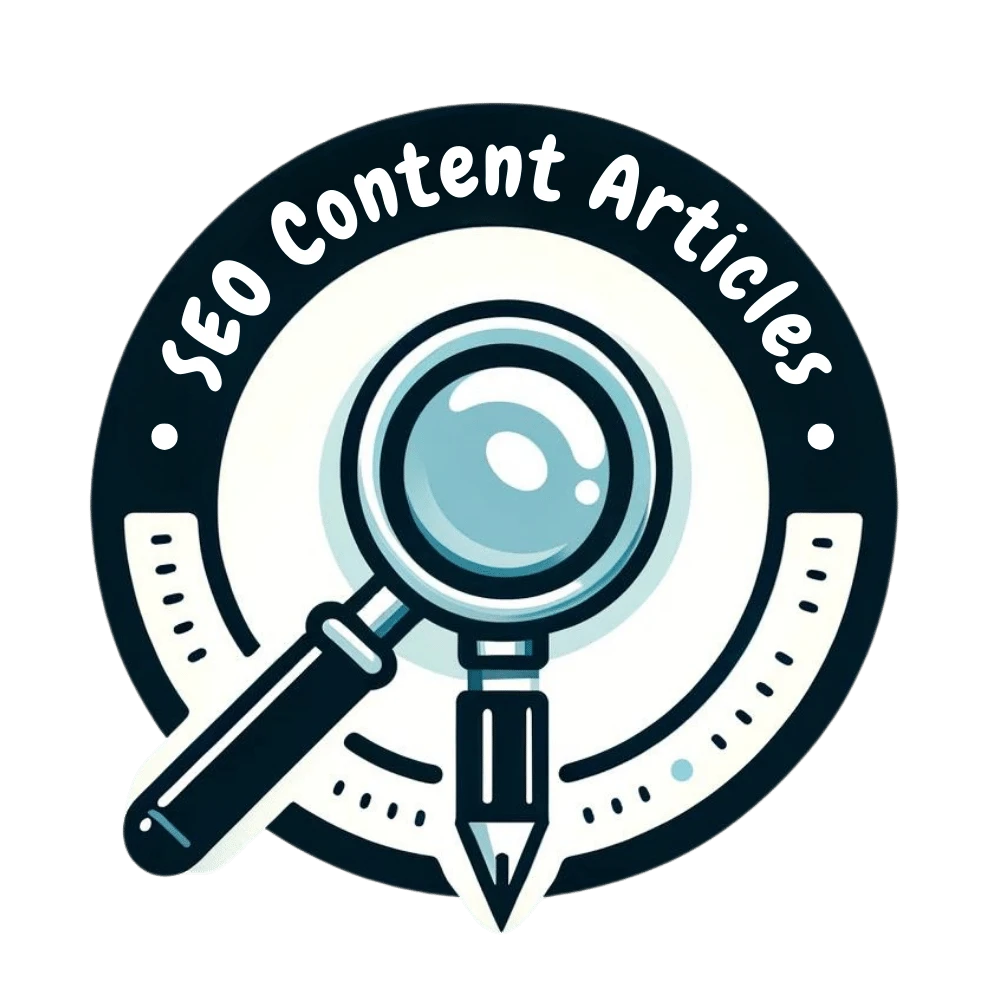As a website owner or marketer, you might have heard about the importance of meta tags for search engine optimization (SEO). One particular aspect of meta tags that often comes up in discussions is the integration of keywords. But what exactly does it mean to integrate keywords into meta tags, and how does it impact your website’s SEO?
Integrating keywords into meta tags refers to the process of adding relevant keywords to the meta tags of your web pages. Meta tags are snippets of HTML code that provide information about your website to search engines. They don’t directly impact search engine rankings, as major search engines like Google focus primarily on the content of your web pages. However, optimizing your meta tags with keywords can still be beneficial when working with services or companies that utilize them.
If you’re using Wix Editor or Editor X, adding keywords to your meta tags is a straightforward process. You can navigate to the SEO Settings of your page and access the Advanced SEO tab. From there, you can add up to 10 keywords per page using the provided fields. These keywords should be relevant and accurately reflect the content of each specific page.
While meta tags have evolved over the years and their influence on search engine rankings has decreased, they can still play a role in optimizing your website for search engines. When integrated effectively, keywords in meta tags can enhance your site’s visibility and attract relevant traffic. By following best practices and utilizing keyword optimization techniques, you can maximize the effectiveness of integrating keywords into meta tags for improved SEO.
Key Takeaways:
- Integrating keywords into meta tags can enhance your website’s visibility for search engines.
- While search engines like Google don’t use meta tags as a ranking factor, keywords can still be used for optimization purposes.
- Use the Wix Editor or Editor X to easily add up to 10 keywords per page in the meta tags section of your SEO settings.
- Ensure your keywords accurately reflect the content of each specific page for better relevance and visibility.
- Balance the use of meta keywords with other SEO techniques, such as quality content and optimized title tags, for maximum impact.
How to Add Keywords to Meta Tags
To optimize your website for search engines, it’s essential to add relevant keywords to your meta tags. By following the steps below, you can ensure that your meta tags are keyword-rich and optimized for SEO:
- Go to your page’s SEO Settings in the Wix Editor or Editor X.
- Click on the Advanced SEO tab.
- Click on Additional Tags.
- Click on + Add New Tag.
- Add your keywords as meta tag code in the HTML Code field, using the format <meta name=”keywords” content=”keyword1, keyword2, keyword3″>.
- Click Apply to save the changes.
When adding keywords to your meta tags, it’s important to follow best practices to maximize their effectiveness:
- Keep the list to 10 or 15 unique keywords or phrases.
- Separate keywords with commas.
- Avoid repetition of keywords.
- Place the most important words or phrases at the beginning of the list.
Keywords can also be added to various elements of the HTML, such as the title tag, heading tags, and link labels. By incorporating keywords strategically throughout your website, you can further optimize your SEO efforts.
If you’re unsure which keywords to use, consider using a meta keywords generator. These tools can analyze the content on your web page and provide you with relevant keywords to include in your meta tags.
Adding keywords to your meta tags is a simple yet effective way to improve your website’s visibility in search engine rankings. By leveraging meta tag optimization techniques and following best practices, you can enhance your SEO efforts and attract more organic traffic to your site.
The importance of meta keywords in SEO

Meta keywords used to play a significant role in SEO, helping pages rank higher in search engine results. However, due to their abuse by unscrupulous webmasters, search engines like Google and Bing have devalued the importance of meta keywords. While they are no longer a major ranking factor in Google’s algorithm, there is evidence that other search engines may still consider them. It is important to use meta keywords responsibly and avoid keyword stuffing.
Ideally, meta keywords should accurately reflect the content of your web pages and provide relevant terms for search engines to index. While meta keywords alone may not boost your rankings, they can still be considered as part of the overall relevance assessment. Google’s ranking algorithm, for instance, utilizes various other factors like the quality and relevance of content, backlinks, user experience, and more.
To select appropriate meta keywords, you can use a meta tags keywords generator. These tools analyze the content on your web page and suggest relevant keywords and phrases based on the topic. With the help of a meta keywords generator, you can streamline the process of keyword selection and ensure that your meta keywords align with your content and target audience.
| Advantages of using a meta keywords generator | Disadvantages of using a meta keywords generator |
|---|---|
|
|
While leveraging meta keywords in SEO may not have the same impact as in the past, incorporating them responsibly can still contribute to the overall optimization of your website. By using relevant and targeted meta keywords, you can enhance your web page’s visibility, increase the chances of attracting relevant organic traffic, and help search engines understand the context of your content.
Remember that meta keywords alone are not a magic solution for optimizing your website. They should complement other SEO techniques, such as creating high-quality content, optimizing title tags, building backlinks, and improving the user experience. By taking a holistic approach to SEO and utilizing meta keywords appropriately, you can enhance your website’s visibility and improve its overall search engine performance.
Incorporating Meta Keywords in Your Content

When it comes to incorporating meta keywords in your content, there are several factors to consider to optimize your website for search engines. Let’s explore the importance of meta keywords, the ideal number to use, and how to select them effectively.
Relevance of Meta Keywords
Meta keywords play a crucial role in conveying the essence of your web pages to search engines. By accurately reflecting the content, meta keywords help search engines understand the relevance of your pages to specific user queries.
For example, if you have a website about healthy recipes, relevant meta keywords may include “healthy cooking,” “nutritious meals,” and “clean eating.”
Using meta keywords that align with your content improves the chances of your website appearing in search results for relevant queries.
Number of Meta Keywords
When it comes to the number of meta keywords to include, it’s important to strike a balance. Including too many keywords can be seen as keyword stuffing, which can harm your website’s rankings.
As a best practice, it is recommended to use a moderate number of meta keywords, typically around 10 per page. This ensures that you are providing enough relevant information without overwhelming search engines or users.
By using a reasonable number of meta keywords, you can optimize your website without raising any red flags.
Misspellings in Meta Keywords
If you want to expand the reach of your website and capture potential visitors, it can be advantageous to include common misspellings in your meta keywords.
For instance, if you have a website about home decor, including misspelled variations like “decoration” or “decore” can help attract users who may unintentionally mistype their search queries.
By incorporating misspellings in your meta keywords, you can increase the chances of reaching a wider audience.
Long-Tail Keywords and Variations
In addition to using general keywords, incorporating long-tail keywords and variations can further enhance the visibility of your website.
Long-tail keywords are more specific phrases that usually have lower search volumes but higher conversion rates. For example, if you have a website selling running shoes, a long-tail keyword could be “best long-distance running shoes for women.”
By including long-tail keywords and variations in your meta keywords, you can target niche audiences and improve the relevance of your website.
Analyzing Real Searches and Using Keyword Tools
An effective strategy for selecting meta keywords is to analyze real searches that have led users to your website. This gives you insights into the keywords users are using to find your content.
Additionally, keyword tools can provide valuable data for keyword research. Tools like the Google Keyword Planner or SEMrush can help you identify popular keywords, their search volumes, and even suggest related terms.
By leveraging real searches and keyword tools, you can choose meta keywords that align with user intent and boost your website’s visibility.
| Keyword Analysis | Search Volume | Competition |
|---|---|---|
| Healthy recipes | 12,000 | Low |
| Nutritious meals | 8,500 | Medium |
| Clean eating | 10,200 | High |
| Healthy cooking | 9,800 | Medium |
The role of meta keywords in attracting searchers

While meta keywords may no longer be a major factor in search engine rankings, they can still play a small but helpful role in communicating your message and attracting searchers to your site. While Title Tags and Meta Descriptions are more important for SEO, using meta keywords can assist in capturing the attention of searchers. Even if meta keywords are not extensively used by all search engines, displaying your website in organic results is still desirable, especially if you are running paid campaigns. Considering the use of meta keywords can provide an edge over competitors.
Search engine marketing: Meta keywords can enhance your search engine marketing efforts by indirectly influencing the visibility of your site in organic search results. Although the influence of meta keywords on rank has diminished, they can still contribute to attracting searchers to your site.
Meta keywords and communication: Meta keywords serve as a form of communication between your website and search engines. By incorporating relevant keywords that accurately represent the content of your site, you can communicate to search engines the relevance of your site for specific queries.
Attracting searchers: While meta keywords don’t directly affect search engine rankings, they can still attract searchers to click on your website in search results. When searchers see meta keywords that match their search queries, they are more likely to consider clicking on your site to find relevant information.
Meta keywords and click-through rates: Relevant meta keywords can improve click-through rates, as they provide searchers with a clear indication that your site is relevant to their search intent. By strategically implementing meta keywords that align with users’ search queries, you can increase the likelihood of attracting clicks.
Title Tags and Meta Descriptions: While meta keywords play a role in attracting searchers, it is important to prioritize the optimization of Title Tags and Meta Descriptions. These elements have a more significant impact on click-through rates and can provide a concise preview of the content on your site.
Paid campaigns and organic results: Displaying your website in organic search results can be advantageous, especially if you are running paid campaigns. By optimizing meta keywords and other relevant SEO elements, you can increase your visibility in organic results, potentially reducing the need for extensive paid advertising.
Table: Comparison of Meta Keywords, Title Tags, and Meta Descriptions
| Meta Keywords | Title Tags | Meta Descriptions | |
|---|---|---|---|
| Usage | Used for indirect communication with search engines | Used to provide a concise title for search results | Used to provide an informative preview of page content |
| Impact on Search Engine Rankings | No longer a major ranking factor | Significant impact on click-through rates | May impact click-through rates and snippet generation |
| Audience Appeal | May not be visible to users in search results | Visible to users in search results | Visible to users in search results |
| Goal | Attract search engine attention and refine intent interpretation | Grab attention and encourage clicks | Influence click-through rates and provide informative snippets |
Incorporating Meta Keywords Effectively
When utilizing meta keywords, it is important to incorporate them effectively to maximize their impact:
- Choose relevant keywords that accurately represent the content of your site.
- Avoid keyword stuffing and ensure a natural incorporation of keywords.
- Consider long-tail keywords and variations to capture a broader range of search queries.
- Analyze real searches and competitor keywords to identify relevant meta keywords.
- Regularly review and update your meta keywords to align with changes in your content or industry trends.
By following these best practices, you can leverage meta keywords as a supplemental element in your SEO strategy, attracting searchers and enhancing the visibility of your website.
Using keyword tools for finding meta keywords

When it comes to optimizing your website for search engines, one crucial aspect is finding the right meta keywords. These meta keywords help search engines understand the content of your web pages and rank them accordingly. Fortunately, there are powerful keyword tools available, such as the Free Keyword Tool provided by WordStream, to assist you in this process.
The Free Keyword Tool is a user-friendly tool that allows you to generate hundreds of relevant keyword terms for your website. By simply entering a topic relevant to your business, you can obtain a comprehensive list of keywords that are commonly searched for by users. This tool helps you identify the most suitable keywords to include as meta keywords in your web pages and incorporate them effectively into your site content.
When compiling meta keywords, it is essential to ensure their relevancy to the page in question. The keywords you choose should accurately reflect the content and topics covered on your web pages. This helps search engines connect your website to relevant user queries.
To enhance the effectiveness of your meta keywords, it is beneficial to consider including common misspellings. Common misspellings can help your web pages appear in search results when users make typographical errors while searching. Additionally, long-tail keywords, which are longer and more specific phrases, can improve the relevancy of your meta keywords and increase the chances of attracting targeted traffic.
Real searches and competitor keywords are valuable sources of inspiration when compiling your meta keywords. Analyzing real searches that have brought users to your site can give you valuable insights into what keywords to include. Furthermore, reviewing competitor keywords can provide you with additional ideas and help you identify any keywords your website may be missing.
By utilizing keyword tools and considering these factors, you can effectively find and compile meta keywords that are relevant, targeted, and optimized for search engines. Meta keywords play a vital role in improving your website’s visibility and attracting organic traffic. So make the most of these tools and strategies to enhance your SEO efforts.
Key Takeaways:
- Keyword tools like the Free Keyword Tool provided by WordStream can help you find relevant meta keywords for your website.
- Compile meta keywords that accurately reflect the content of your web pages.
- Consider including common misspellings and long-tail keywords to enhance the relevancy of your meta keywords.
- Analyze real searches and competitor keywords to gain insights and inspiration for your meta keyword compilation.
Conclusion
While the influence of meta keywords on search engine rankings may have diminished, they still have a role to play in optimizing your website for search engines. By incorporating relevant and carefully selected keywords into your meta tags, you can increase your site’s visibility and attract searchers to your content.
However, it is important to remember that meta keywords should be one part of your overall SEO strategy. Balancing their use with other techniques, such as creating high-quality content and optimizing your title tags, is crucial for success.
To maximize the effectiveness of integrating keywords into meta tags, it’s recommended to follow best practices and utilize keyword tools. These tools can help you identify relevant keywords and phrases that will resonate with your target audience. By staying informed of the latest trends and regularly updating your meta tags, you can stay ahead of the competition and improve your website’s search engine optimization.









